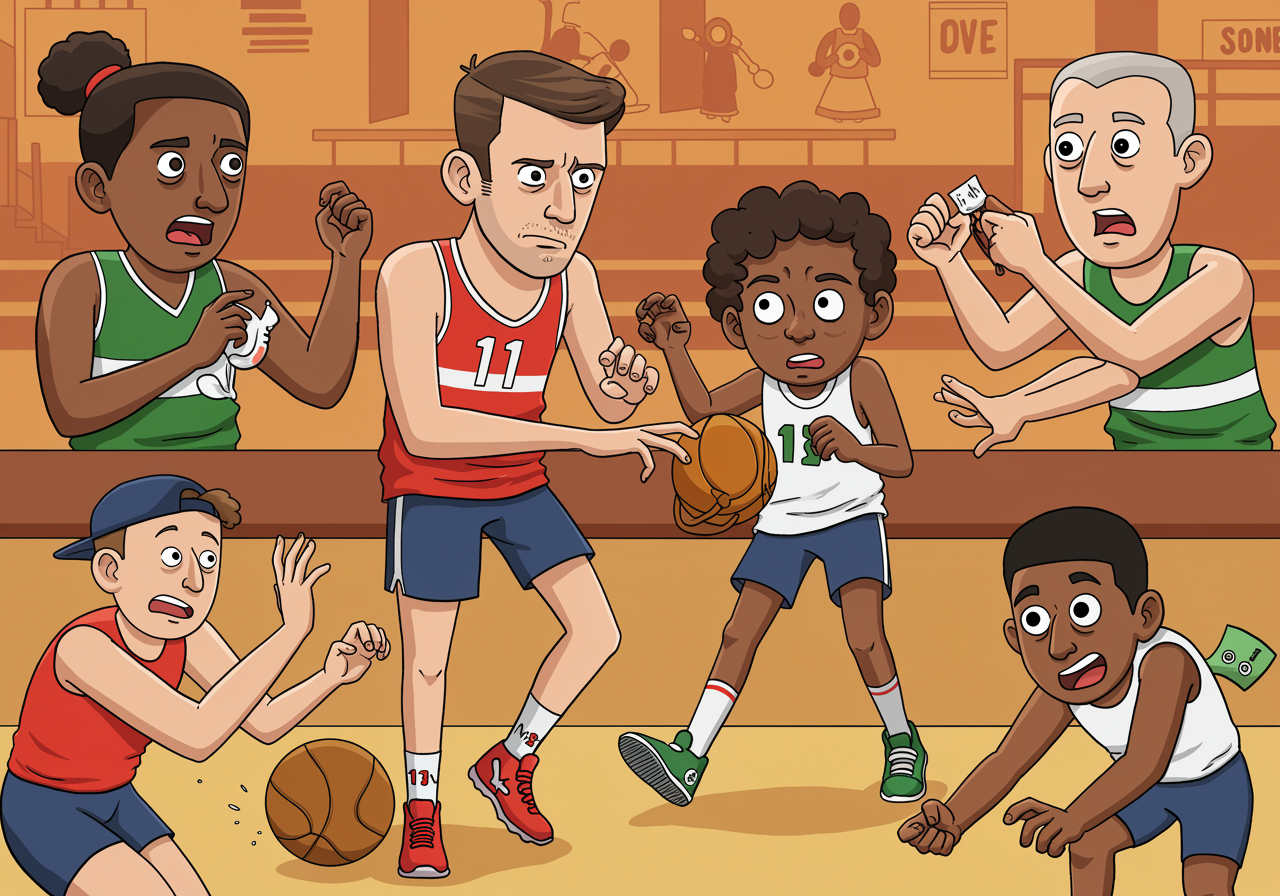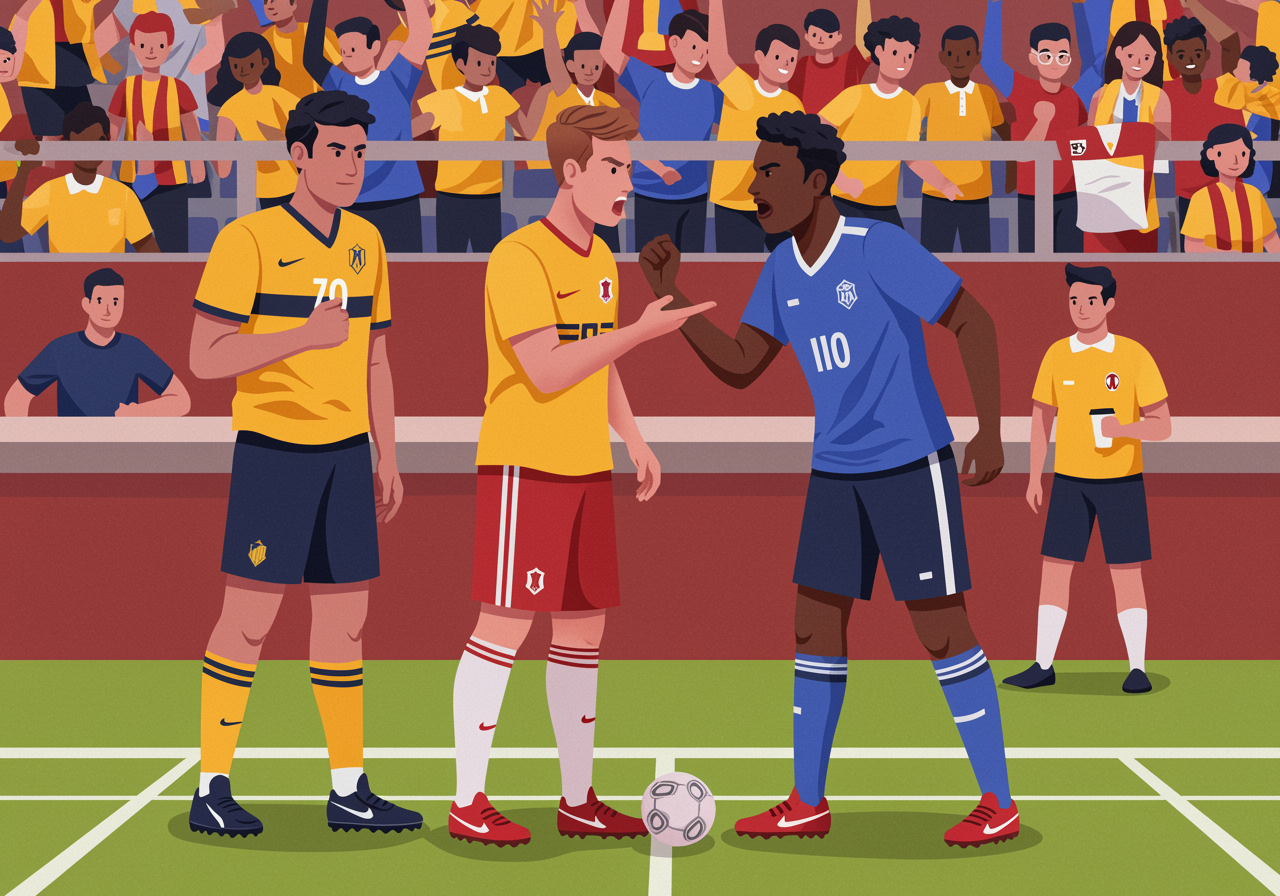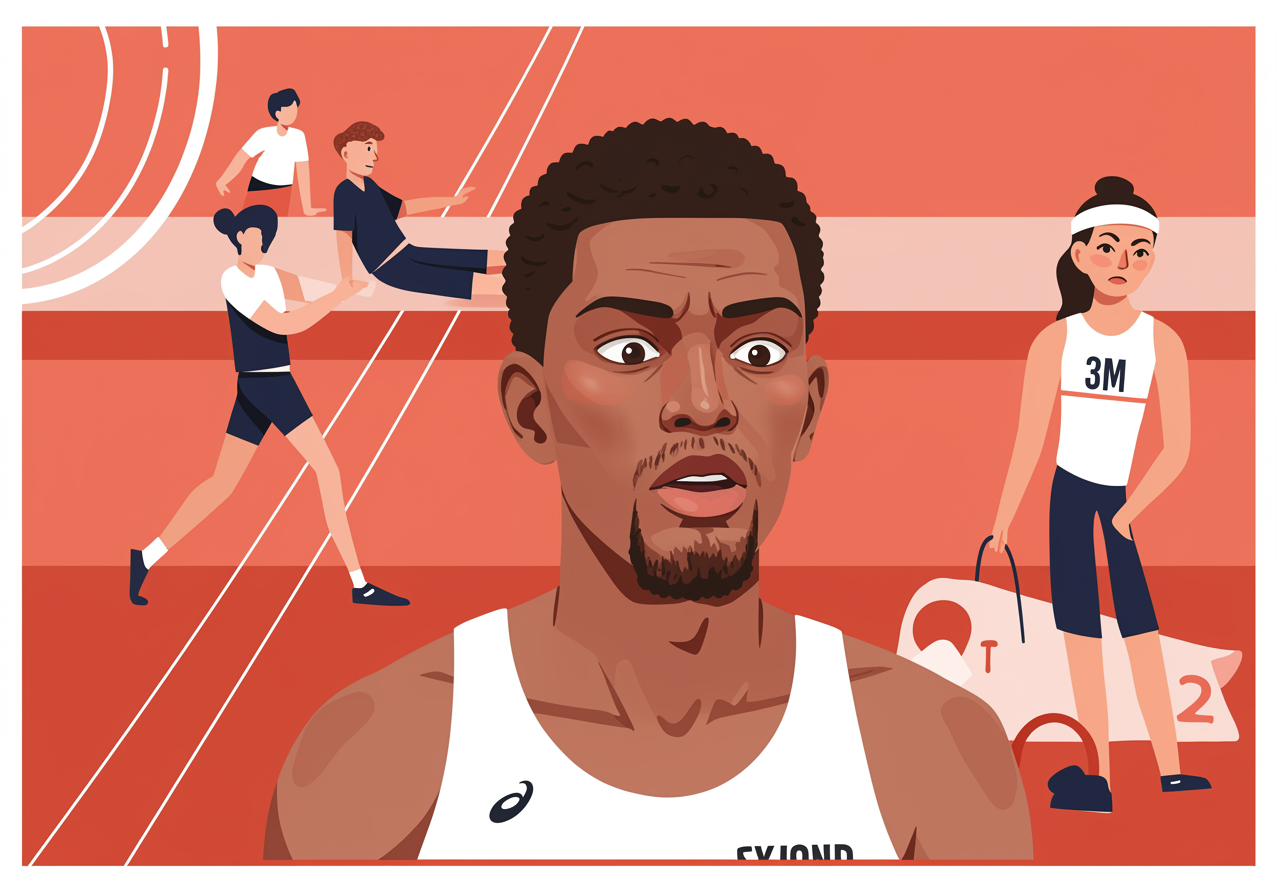When Champions Clash: The Wild Science Behind Athletic Showdowns
Why even the best athletes sometimes lose their cool under pressure
Discover the fascinating psychology and biology behind why competitive athletes sometimes clash, and how these moments teach us about handling pressure in our own lives.
Overview
Have you ever watched a game and suddenly seen two athletes get into a heated argument or even a fight? It's actually a perfect window into how our brains work under extreme pressure! When we understand why these clashes happen, we learn valuable lessons about managing our own emotions during stressful moments. These conversations help kids recognize that even world-class athletes are human, and that learning to handle intense feelings is a skill we all need to practice.

Understand in 30 Seconds
Get up to speed quickly
- Adrenaline Takes Over: When athletes compete, their bodies flood with adrenaline – the same chemical that makes your heart race during a scary movie. This can make them react faster but also more emotionally.
- Pressure Cooker Effect: Imagine years of training coming down to one moment with millions watching. That intense pressure can make anyone's emotions bubble over, even professional athletes.
- Different Personalities Collide: Some athletes are naturally competitive and aggressive, while others are calm and focused. When these different personality types meet under stress, sparks can fly.
- Stakes Are Sky-High: When championships, money, or career dreams are on the line, athletes feel every mistake more intensely. This can lead to frustration that spills over onto opponents or teammates.
Real Life Scenario
Situations you can relate to
Think about the last time you had to give a presentation in front of your class. Your heart probably raced a little, right? Now imagine that presentation could win you a million dollars, and millions of people were watching you live on TV. That's what athletes face! When basketball player Draymond Green got into heated exchanges during playoff games, it wasn't because he's a 'bad person' – it's because the pressure was enormous and his competitive fire was burning at maximum intensity. Have you ever noticed how you might snap at a friend when you're stressed about a test? Athletes experience that same thing, but amplified by 100.

Role Play
Spark a conversation with “what if” scenarios
What if you were in the championship game of your favorite sport, and an opponent kept trash-talking you every play?
- Role play: Take turns being the competitor and the trash-talker. Practice different ways to respond – some healthy, some not so much. Discuss which approaches work better.
What if you trained for years for one big competition, and a referee made a call you thought was completely unfair?
- Role play: Act out different reactions – from explosive anger to calm discussion. Talk about which reactions help your case and which hurt it.
What if you were on a team where one player always hogged the spotlight, even when others made great plays?
- Role play: Role-play being the frustrated teammate and the spotlight-stealer. Explore how team dynamics can create tension even among people on the same side.
FAQs
Frequently asked questions people want to know
Are athletes who clash just bad sports?
Not usually! Most athletes who have conflicts are actually incredibly dedicated competitors. The intensity that makes them great can sometimes boil over in stressful moments.
Why don't athletes just stay calm like in practice?
Practice is very different from competition. In games, there's real pressure, opponents trying to get in your head, and often career-defining moments at stake.
Do these clashes help or hurt athletic performance?
It depends! Sometimes a little conflict can fuel motivation, but usually big emotional outbursts hurt focus and teamwork. The best athletes learn to channel their intensity productively.
Examples in the Wild
See how this works day to day
- In 2023, tennis players Stefanos Tsitsipas and Nick Kyrgios had multiple heated exchanges during Wimbledon, with Tsitsipas calling Kyrgios a 'bully' after psychological gamesmanship. (ESPN Sports)
- The 2022 NBA playoffs saw multiple technical fouls and ejections as teams like the Warriors and Grizzlies let emotions run high during crucial games. (NBA Official Statistics)
- During the 2023 World Cup, soccer players from different teams were involved in several on-field confrontations, leading to yellow and red cards for unsportsmanlike conduct. (FIFA Match Reports)
- Olympic swimmer Adam Peaty spoke publicly about how the pressure of defending his titles led to emotional outbursts during training and competition preparation. (Olympic Channel)
In Summary
What you should know before you start
- Athletic clashes usually stem from intense pressure, high stakes, and adrenaline – not bad character
- Different personality types can clash when emotions run high during competition
- Understanding these conflicts helps us manage our own emotions in stressful situations
- Even world-class athletes are human and struggle with emotional regulation under extreme pressure
Pro-tip for Parents
You got this!
If your child dismisses an athlete's behavior as 'just being a jerk,' gently redirect the conversation to explore what pressures that person might be facing. Ask questions like 'What do you think was going through their mind?' or 'How might you feel in that situation?' This helps kids develop empathy and emotional intelligence rather than just judging others.

Keep an Eye Out For
Find these examples in everyday life
- Watch for emotional moments during live sports broadcasts – great conversation starters about pressure and reactions
- Notice how your child handles frustration during their own games or competitions
- Look for examples of athletes who handle conflict well as positive role models to discuss
Explore Beyond
Look up these related research topics
- How do emotions affect decision-making in high-pressure situations?
- What makes some people naturally more competitive than others?
- How do different cultures view competition and conflict in sports?